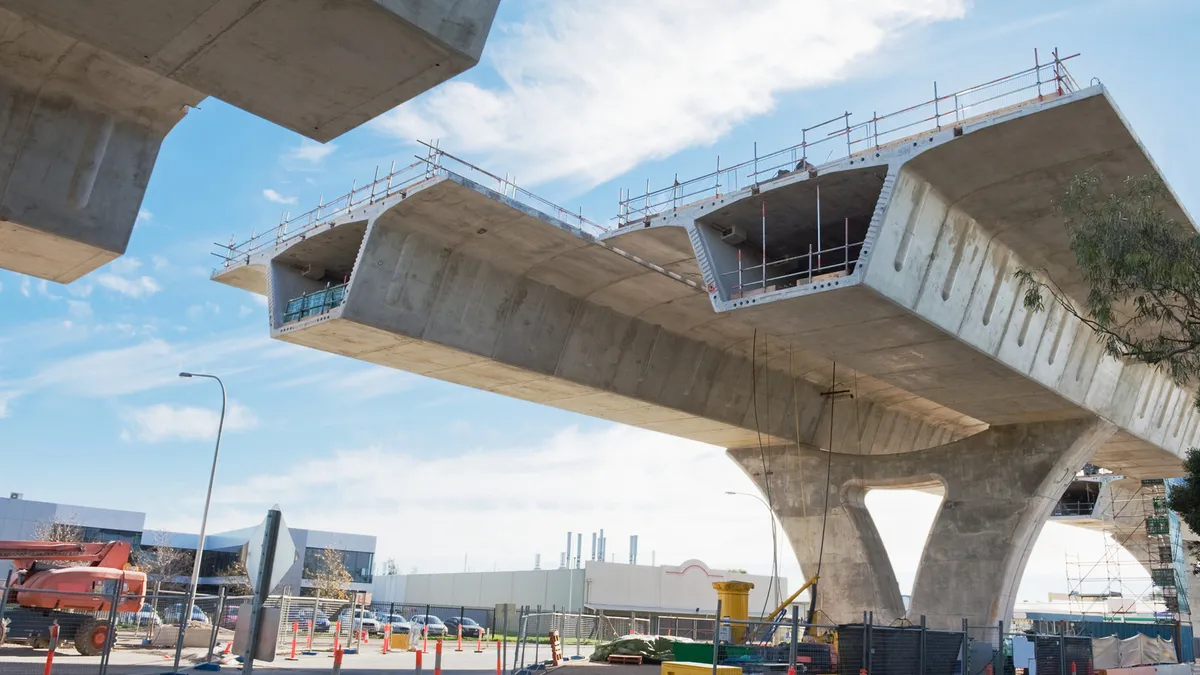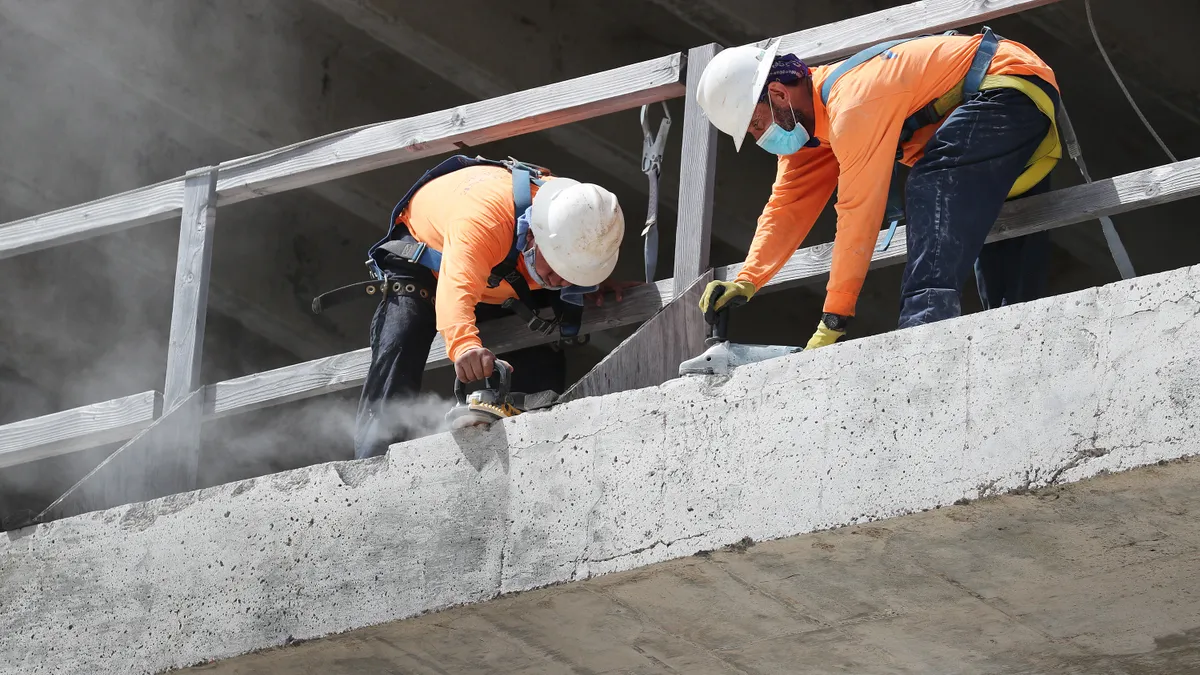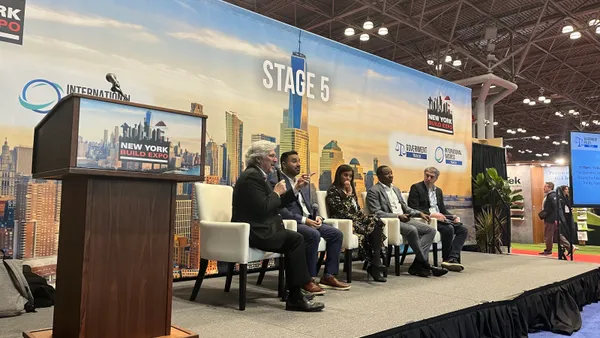Dive Brief:
- Federal budget allocations for the USDOT’s Better Utilizing Investments to Leverage Development (BUILD) discretionary grants decreased by $600 million to $900 million in the $333 billion fiscal year 2019 spending bill President Donald Trump signed on Feb. 15.
- BUILD grants are to be distributed “equitably” between rural and urban areas and across a wide variety of transportation projects. Most of the grants will be in the range of $5 million to $25 million, but some rural grants can be as little as $1 million. The bill also gives priority to projects that require federal funding to complete their financing packages.
- The BUILD grant program, previously known as TIGER (Transportation Investment Generating Economic Recovery) grants, began in 2009 with the goal of investing in significant local and regional road, rail, transit and port projects. To date, the program has provided $7.1 billion for 554 projects in all 50 states, Washington, D.C., and U.S. territories.
Dive Insight:
Less money in the BUILD program means the competition for funds will be even more fierce during the next award application round. In December, Transportation Secretary Elaine Chao handed out $1.5 billion of BUILD grants and said at the time that applications had totaled $10.8 billion, far exceeding the program’s capacity. The USDOT spread the money between 49 states and Washington, D.C., for initiatives as varied as a $25 million urban riverfront revitalization in Jacksonville, Florida, and $1.3 million maintenance station project near Santa Fe, New Mexico. Secretary Chao called the grants a down payment on the country’s infrastructure.
In June the USDOT announced the availability of another $1.5 billion for road and bridge projects. The agency published a list of proposed awardees for the Infrastructure for Rebuilding America (INFRA) grants, and the largest potential award is $184 million to the Georgia DOT to build 17 miles of express lanes on a state road.
In the first budget proposal that the president submitted after he took office in 2017, he advocated for the elimination of BUILD grants and the Federal Transit Administration’s Capital Investment Grant program as well as other significant cuts elsewhere in the USDOT’s infrastructure budget.
These changes were in line with the administration’s goal to reduce or even eliminate federal funding for projects that did not have a national impact. While the administration has not eliminated these programs yet, it has said it will give top priority to those projects that have arranged for significant local funding.














